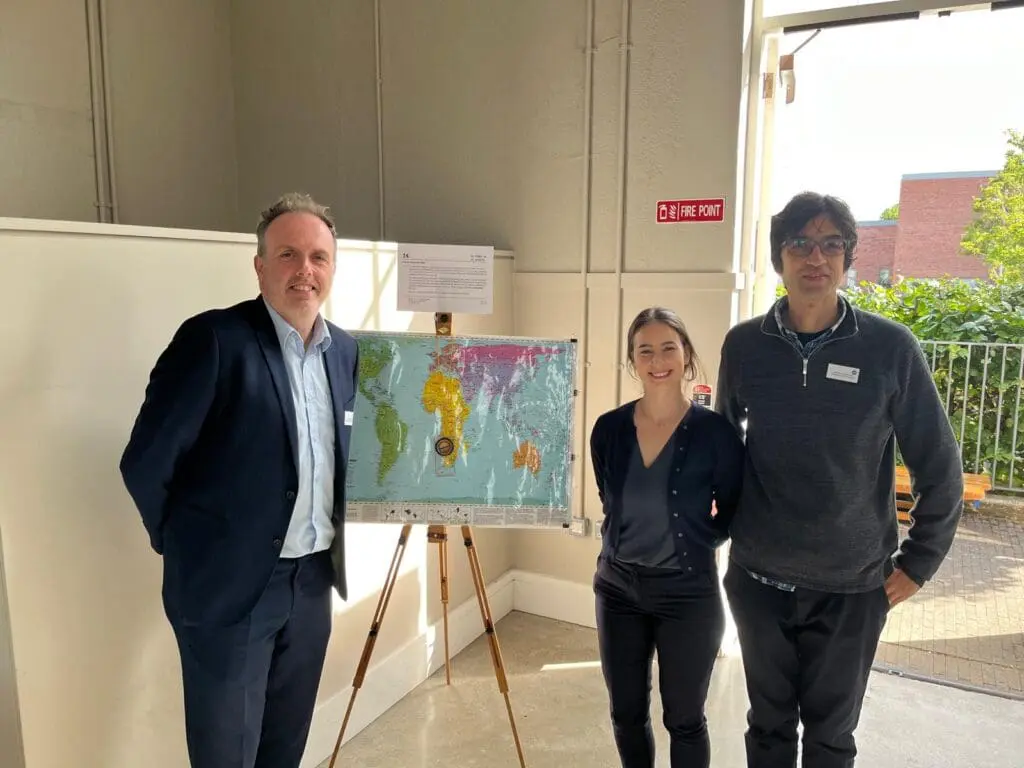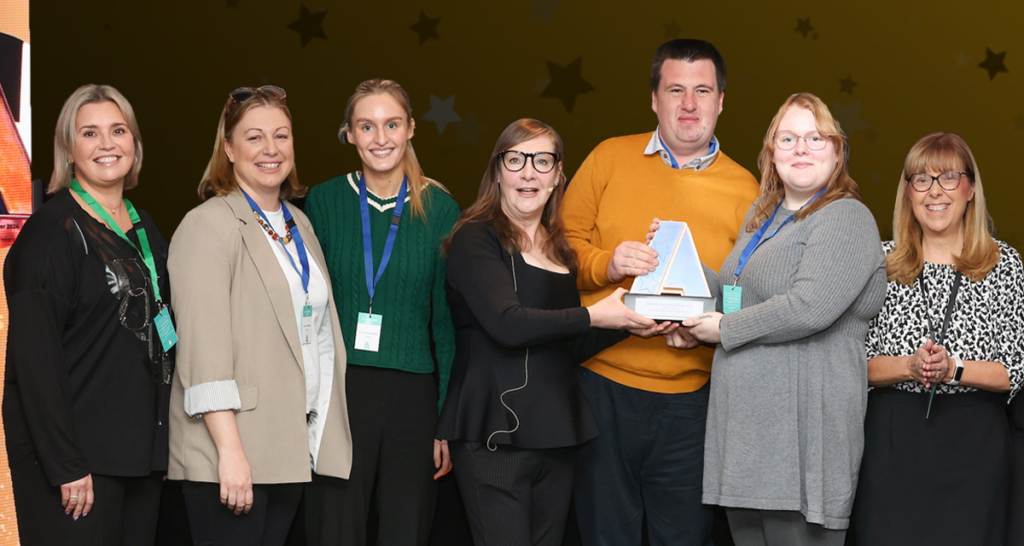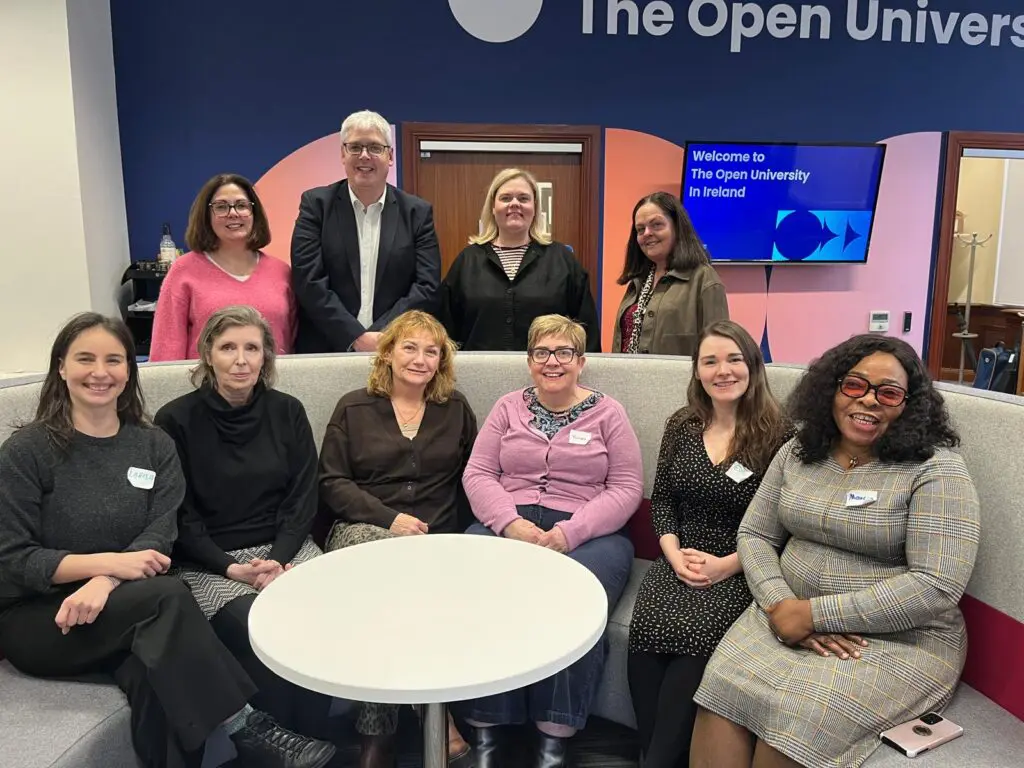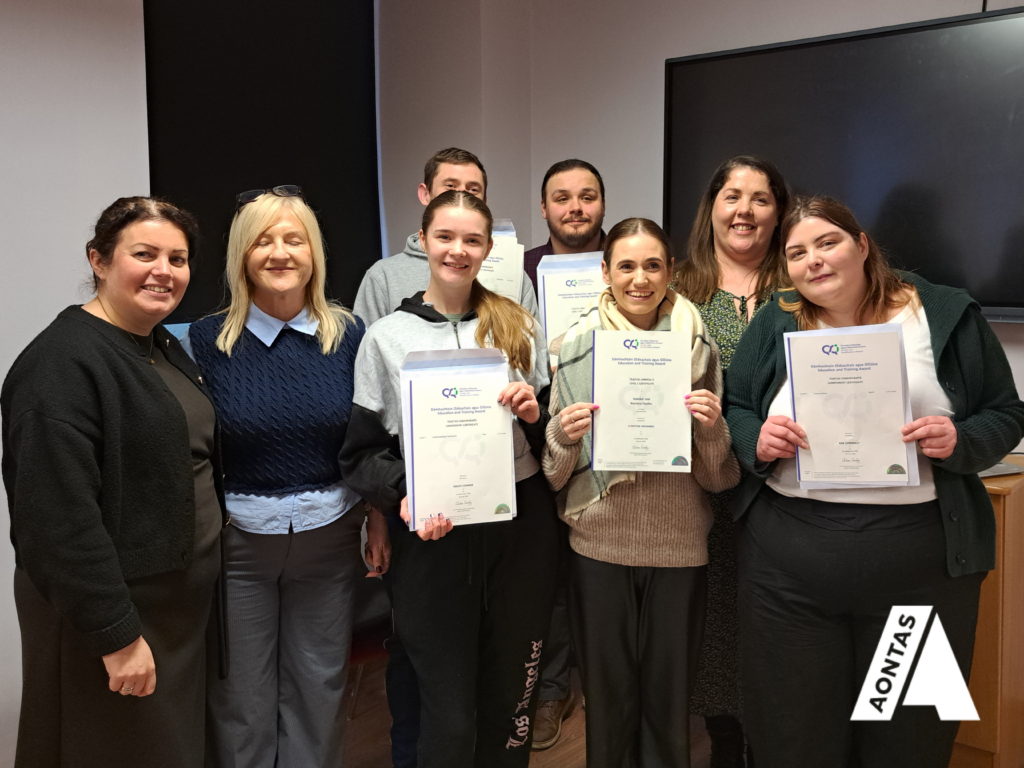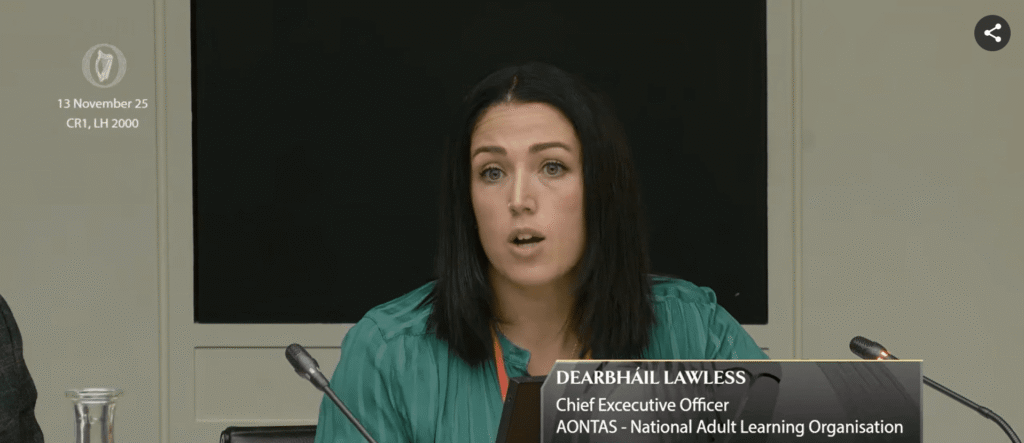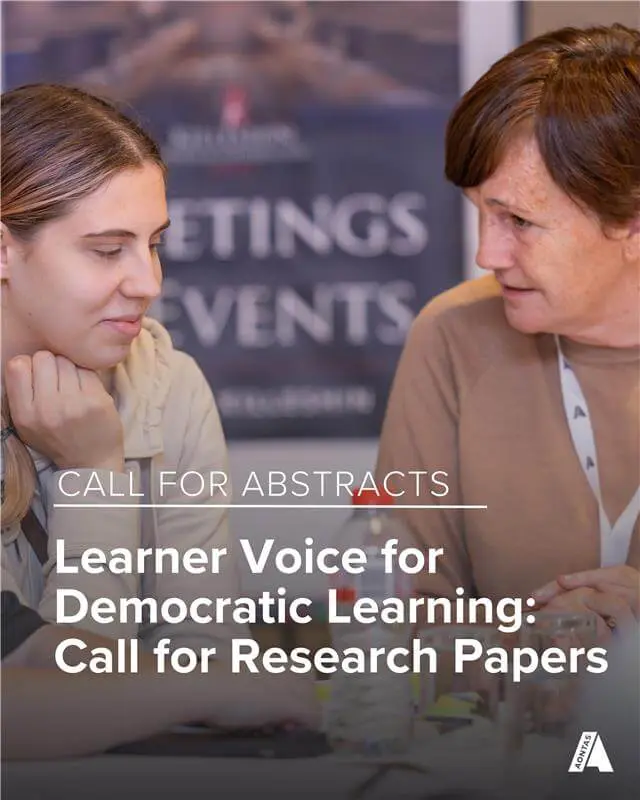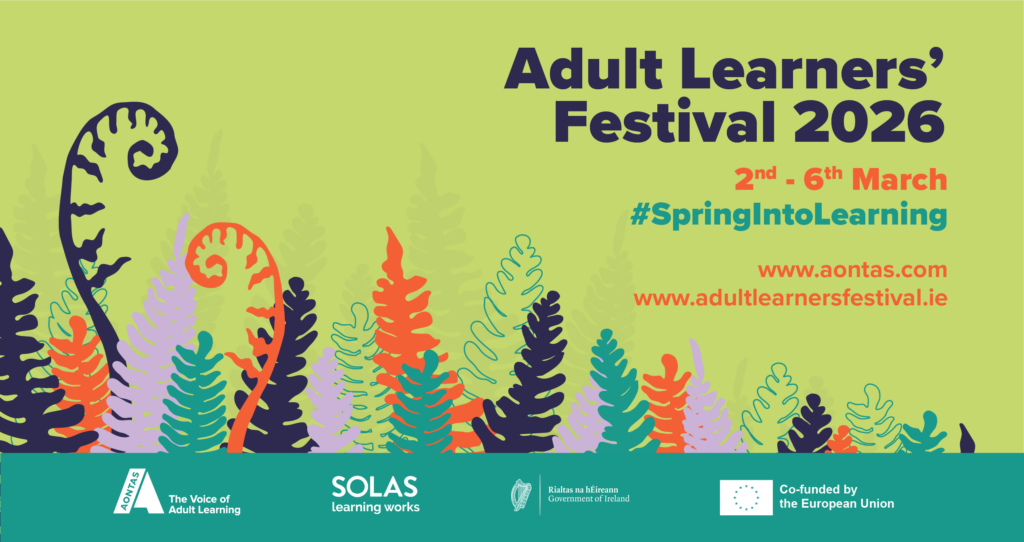The focus is on inequality, poverty, human rights, sustainability and the impact of globalisation.
The term ‘development education’ is often used interchangeably with ‘global citizenship education’ and ‘sustainable education’.
IDEA is the national network for development education in Ireland, representing over 120 members who are committed to advancing equality and tackling injustice in Ireland and abroad.
Their annual conference this year celebrated achievements in development education in Ireland, and provided space for critical reflection on the challenges in the education sector and challenges resulting from rapid changes in our society, and growing global and local polarisation.
There were table conversations and workshops on racism and inclusion, and exercises in imagining the future of development education.
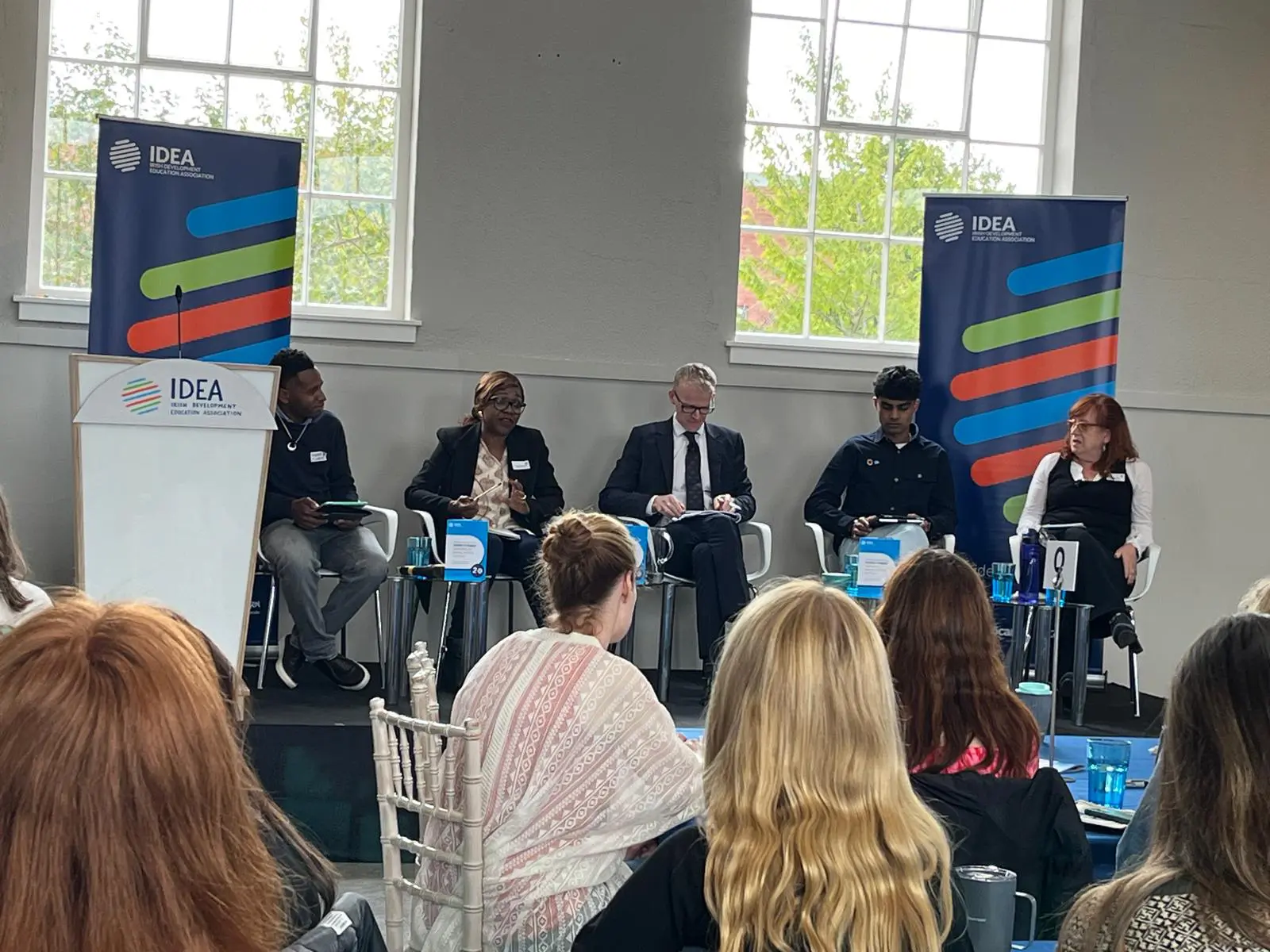 Speakers reminded us of the impact of development education in making the world a better place and the effort Ireland has made in the recent decades in including development education in formal settings like primary and secondary schools, but also in informal and non-formal settings in community and adult education.
Speakers reminded us of the impact of development education in making the world a better place and the effort Ireland has made in the recent decades in including development education in formal settings like primary and secondary schools, but also in informal and non-formal settings in community and adult education.
Tackling inequalities with development education
A recurring theme was the importance of grounding development education in the radical and disruptive Freirean philosophies.
Dr Eilish Dillon from Maynooth University gave an inspiring talk reminding us of the role of development education in tackling inequalities, which can only be possible by questioning the status quo and understanding our position in the world:
‘Unless we change our understanding of the world, we can’t change the world.’
During her talk, Dr Lilian Nwanse-Akobo of Maynooth University echoed this call for radical action, stressing that ‘we cannot take radicality out of global citizenship education, otherwise it will end up just being a buzz word.’
Lilian also invited us to reflect on how we can embed global citizenship education in our day-to-day life, stressing that we need to strike a balance between the systemic and the individual experiences of oppression:
‘All of us have internalised a form of oppression and without humility we cannot carry out our work.’
Inclusion and development education
Another recurring theme was the need for more inclusive practices, both in education and in our day-to-day lives, which is particularly relevant in the current context of growing polarisation and anti-immigrant sentiments.
Sarah Kelleher, CEO of Lourdes Youth and Community Services, gave an insightful talk about the challenges of local community education providers in dealing with the anti-immigration attitudes and behaviours.
She talked about the difficulty in creating inclusive spaces for both local communities who are misinformed and have prejudices against immigrants, and the immigrant communities who are in process of integration.
She stressed that people need to be met where they are, and that it is important that we hold safe space for honest conversations where people’s fears can be addressed in a non-judgemental way, while also educating them on misinformation and fostering spaces for critical reflection.
Sarah reminded us of the ‘the richness of being a mosaic’, highlighting the value of diversity and bringing together different perspectives and experiences.
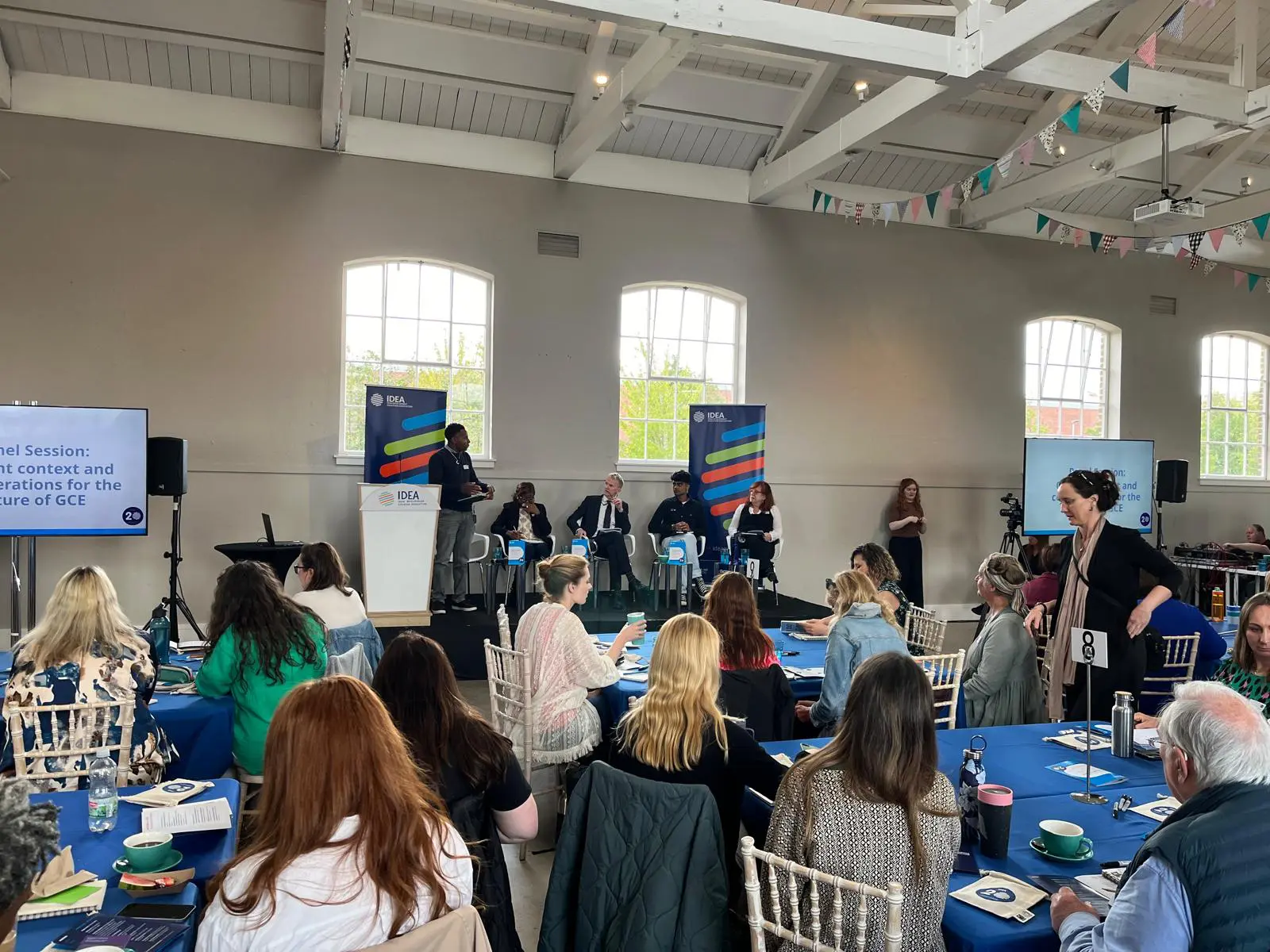
More details from the conference
Guest speakers and panellists included experts in the field: Dr Eilish Dillon, Assistant Professor at the Department of International Development at Maynooth University; Mohamed Naeem, Activist and Former UN Youth Delegate for Ireland; Dr Lilian Nwanse-Akobo, Director of the Higher Diploma in Further Education Programme at Maynooth University and Board member of AONTAS; Sarah Kelleher, CEO of Lourdes Youth and Community Services (LYCS); Niall Tierney, Director of Global Programmes and Global Citizenship Education Unit, Irish Aid, Department of Foreign Affairs; and Pierre Yimbog, Co-founder and Managing Director of Black and Irish and Company Secretary at the IDEA.
Take a look at the conference webpage here.
At AONTAS, we recognise the importance of development education in adult and community education, and we are committed to tackling the challenges around sustainability, global citizenship and migration and inclusivity.
We are currently working on a number of European and national projects that address green and just transitions and anti-racism.
For more information, check out Just4All and the New European Agenda for Adult Learning.
For more information, contact larisa at lsioneriu@aontas.com
